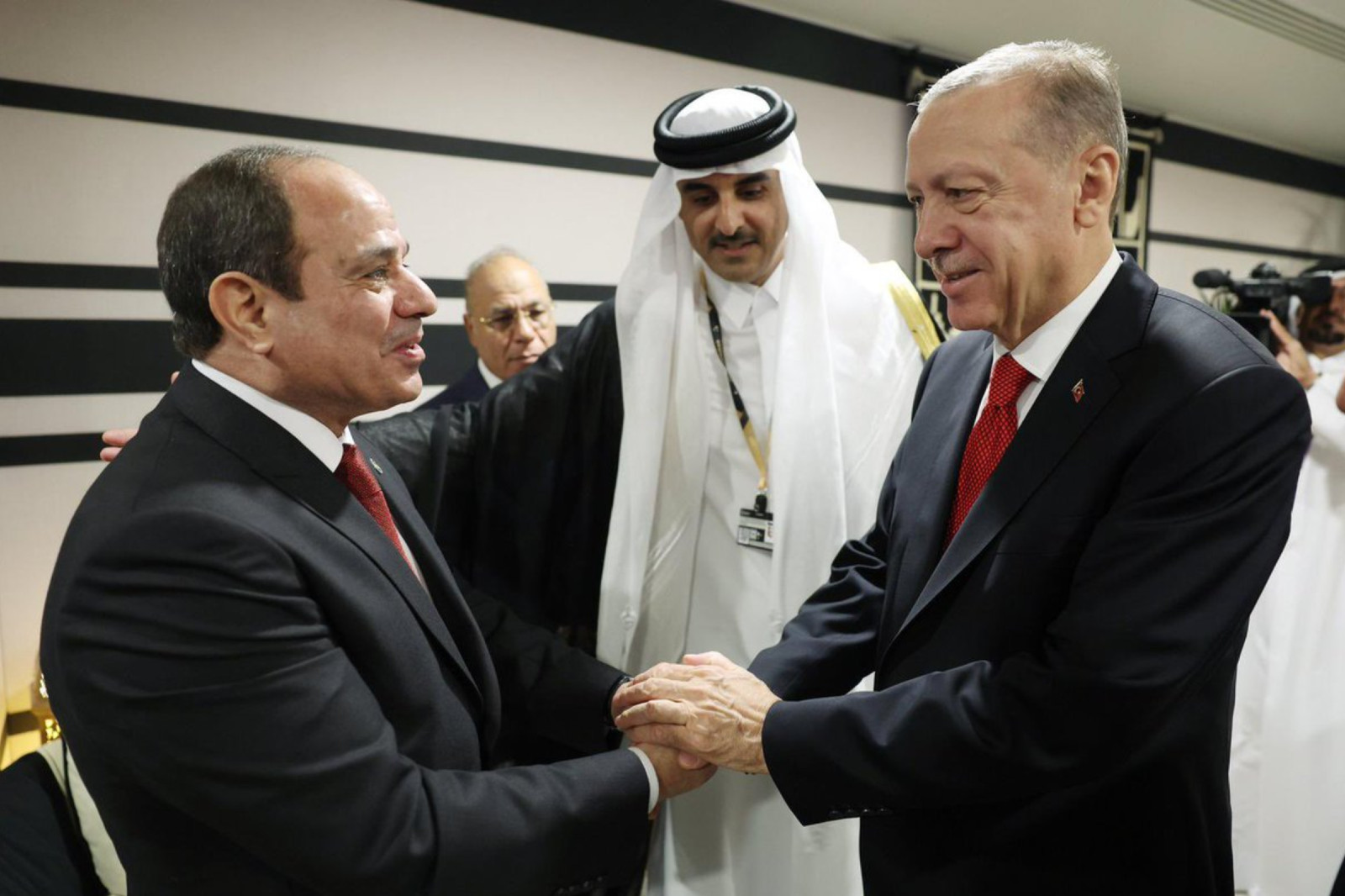Diplomacy in 2022: Warmer ties and a standout success story

For our foreign policy, 2022 was the year of continuing to mend fences — all while taking center stage globally with one of the biggest international events: Egypt’s foreign policy in 2022 continued to play out on largely the same notes as it did in 2021. We continued to patch up our relations with Qatar after officially reinstating diplomatic ties last year, while the rapprochement with Turkey also inched closer. Meanwhile, as has been the case for the past several years, the issue of the Grand Ethiopian Renaissance Dam (GERD) remained an unresolved thorn in our side. But the big foreign policy moment for us in 2022 was hosting COP27 in November, which took months of preparations and diplomatic legwork to drive policy priorities.
First things first: In our neck of the woods, we’ve been bolstering ties and further cementing our regional diplomatic importance. After ending our four-year blockade against Qatar in 2021, we continued to cozy up with Doha throughout the year. Top Qatari officials visited Cairo to consolidate our cooperation, but the landmark moments in our relationship were when Qatari Emir Sheikh Tamim bin Hamad Al Thani came to Egypt in June and when President Abdel Fattah El Sisi headed to Doha in September. Besides the face time between the two leaders confirming that all is well and good between Egypt and Qatar, these visits brought with them important progress on investments and economic cooperation for the two countries. While in Doha, El Sisi lined up multiple investments from Qatar, which had already pledged to invest USD 5 bn in Egypt to help support the economy amid the fallout from the war in Ukraine.
We also got in on a regional push with other countries: Egypt, Israel, and the UAE bolstered their relations this year, with three-way meetings between the three countries that touched on cooperation in several areas — and more or less set up a contain-Iran axis. That meeting was then followed by the Negev Summit, during which senior officials from Egypt, Israel, the UAE, Bahrain, Morocco, and the US discussed regional issues and agreed to deepen ties in a range of areas, including clean energy, education, food and water security, and health, as well as regional security. The summit, which the Israeli government agreed to make an annual event, is largely being framed as a major geopolitical realignment in the region.
Things are looking better with Turkey, too: After officials from Egypt and Turkey began consultations last year to restore diplomatic ties — which have been severed since 2013 — El Sisi and his Turkish counterpart Recep Tayyip Erdogan shook hands at the World Cup last month, signaling potential for progress on mending relations. High-level talks between the two countries were suspended after only two rounds after the two sides failed to see eye to eye over Ankara’s role in Libya.
Our ties with Washington remain “meh”: After making headway with the Biden administration last year with our successful mediation of a ceasefire between Palestine and Israel, Egypt lost out on a portion of its annual US military aid due to its human rights record. In February, the White House said it would cancel USD 130 mn in military aid to Egypt — which had been frozen since the previous year — citing “specific human rights-related conditions.” Still, our security cooperation with the US stayed strong, with arms purchases and visits from top US military brass going on as normal.
Meanwhile, GERD negotiations went nowhere — again: Negotiations between Egypt, Sudan, and Ethiopia over the Grand Ethiopian Renaissance Dam (GERD) — previously a key focal point of Egyptian foreign policy and diplomatic activity — stalled for yet another year, with no tangible progress to speak of. Talks hit a wall when Ethiopia unilaterally embarked on the second filling of the dam’s reservoir and Egypt and Sudan pulled out of the Africa Union-led negotiations. Tensions then continued to heighten when Ethiopia completed its third filling of the dam in August.
Officials did, however, expend a lot of effort rallying international support for our position on the dam: El Sisi and Foreign Minister Sameh Shoukry discussed the GERD issue with global leaders in a bid to drum up support for Egypt in the negotiations. Critically, El Sisi met with Senegalese President Macky Sall at the start of the year, ahead of Senegal assuming the presidency of the African Union. Ethiopia had previously signaled it wanted to bring back GERD talks to the AU. Egypt also took the matter to the UN Security Council again. Most recently, El Sisi appealed to the US earlier this month during a visit to Washington, asking US Secretary of State Antony Blinken to throw its weight behind Egypt on the “vital and existential” matter. Blinken encouraged the three countries to continue pursuing a diplomatic resolution to the issue, but signaled the US will not be taking sides.
Now, we get to the good stuff: COP27. Egypt was nominated to host COP27 in November last year, after El Sisi announced Egypt’s bid to host the conference. We were officially passed the hosting baton in June, but by then Egyptian officials had already embarked on a flurry of diplomatic activity to prepare for the large-scale event. Shoukry, along with International Cooperation Minister Rania Al Mashat and Environment Minister Yasmine Fouad began pushing a climate agenda focused on innovative climate financing, as well as support for emerging markets — particularly in Africa — on mitigation and adaptation.
Want more about the outcomes of the climate conference? We have the full recap in last week’s edition of Going Green.